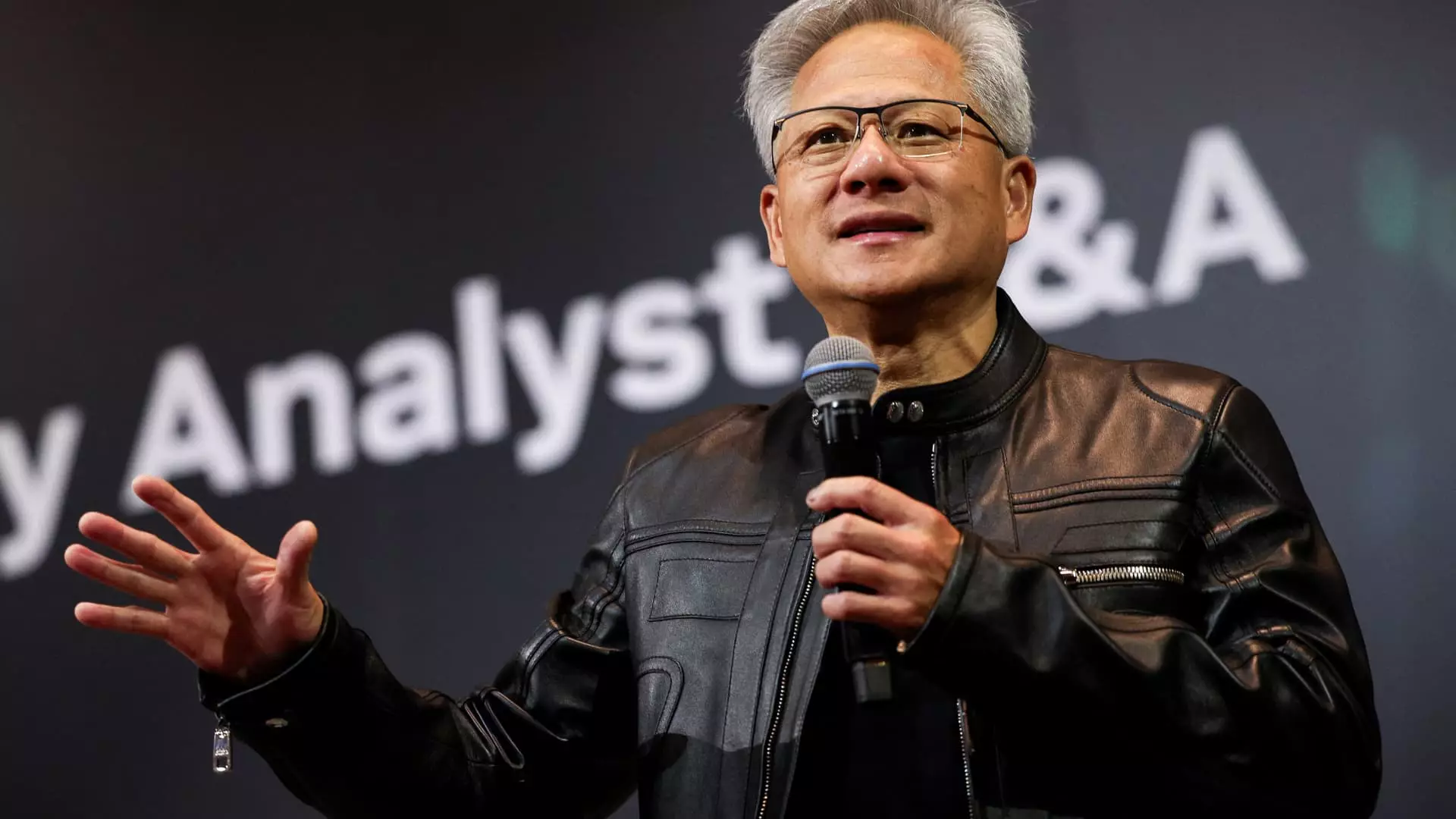Jensen Huang, CEO of Nvidia, recently sold substantial portions of his shares—75,000 valued at nearly $13 million—highlighting a troubling pattern of dependency on fleeting technological optimism. While these transactions may appear routine, they symbolize deeper issues within the industry—namely, the fragility of Nvidia’s soaring valuation, which this CEO’s personal wealth indirectly inflates. His earlier sales, totaling $37 million, follow a planned schedule, yet they raise questions about whether leadership sees impending risks or a bubble that may soon burst. When corporate insiders regularly cash out in a booming market, it’s a sign that confidence may be overstated, and narratives of unstoppable AI growth are beginning to falter under closer scrutiny.
Market Overconfidence and the Bubble of AI Hype
Nvidia’s market capitalization surpassing $4 trillion positions it as a behemoth of technological dominance. However, such valuation is less a reflection of tangible, sustainable value and more an echo chamber fueled by relentless enthusiasm for AI. As the chips of the future—like the H20—are poised to be exported to China, it underscores the geopolitical chess game intertwined with technological advancements. There’s an inherent danger in equating aggressive sales strategies with lasting market strength. The recent export license developments signal a possible pivot point—either a strategic expansion or a sign of desperation, as reliance on overseas markets becomes a geopolitical gamble. The booming demand for AI hardware may be a short-term phenomenon, but overheated markets often collapse when investor confidence is no longer justified.
The Risks of Overdependence and Political Instability
Huang’s expressed desire to push for more advanced chips into China highlights the precarious intersection of business ambitions and international policy. While the U.S. government signals tentative approval, this thin veneer of stability is no substitute for the reality of escalating geopolitical tensions. Nvidia’s dependence on government permissions and international markets illustrates a broader vulnerability—if political winds shift, Nvidia’s growth could be severely hampered. Huang’s insider sales, coupled with his strategic push into China, convey an underlying tension: a company thriving on complex, high-stakes diplomacy rather than solely on engineering prowess. This risky dependency on volatile political environments makes the company exposed to sudden policy reversals, which could devastate its long-term prospects.
The Cautionary Tale of Entrepreneurial Excess
Jensen Huang’s stock sales are a stark reminder that even visionaries are not immune to the pitfalls of unchecked ambition and market optimism. His strong personal fortune, bolstered by Nvidia’s extraordinary valuation, may encourage hubris—an attitude that risks blinding executives to emerging vulnerabilities. As AI becomes central to economic strategy, the temptation to cash out and protect personal gains can distort corporate priorities. The larger concern isn’t just Huang’s personal wealth; it’s the narrative that Nvidia’s meteoric rise can continue indefinitely without fundamental innovations or realistic market sustainability. This obsession with growth, powered by artificial intelligence, risks creating an unsustainable bubble that could implode, leaving investors and workers exposed.
In the current climate, Jensen Huang’s recent stock sales and strategic international moves serve as an uncomfortable wake-up call. The ascent of Nvidia is not immunity from the risks looming on the horizon—rather, it is a fragile house of cards built on hype, geopolitical maneuvering, and short-term gains.

